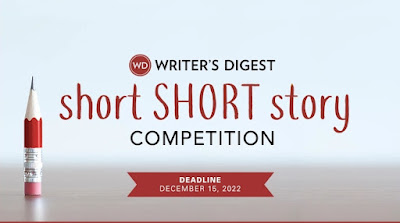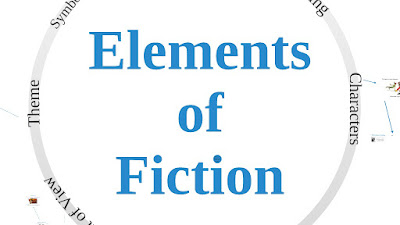Writer’s Digest Short Short Story Competition 2023
DEADLINE: DECEMBER 15, 2022
They’re looking for short fiction stories! Think you can write a winning story in 1,500 words or less? Enter the 23rd Annual Writer’s Digest Short Short Story Competition for your chance to win $3,000 in cash, get published in Writer’s Digest magazine, and a paid trip to their ever-popular Writer’s Digest Conference!
- Prizes
- How to enter
- Preparing Your Entry
- FAQ
- Pricing and Deadlines
- Easy to follow PDF
Prizes
One First Place Winner will receive:
- $3,000 in cash
- Their short story title published in Writer’s Digest magazine’s September/October 2023 issue
- A paid trip to the Writer’s Digest Annual Conference, including a coveted Pitch Slam slot
The Second Place Winner will receive:
- $1,500 in cash
- Their short story title published in Writer’s Digest magazine’s September/October 2023 issue
The Third Place Winner will receive:
- $500 in cash
- Their short story title published in Writer’s Digest magazine’s September/October 2023 issue
Fourth through Tenth Place Winners will receive:
- $100 in cash
- Their short story titles published in Writer’s Digest magazine’s September/October 2023 issue
Eleventh through Twenty-Fifth Place Winners will receive:
- A $50 gift certificate for writersdigestshop.com
How to Enter
- All entries must be submitted online. Entries must be accompanied by the required judging fee. They accept PayPal or credit card payment for the required judging fee. Entry fees are non-refundable.
- All entries must be in English. Only original works that have not been published (at the time of submission) in print, digital or online publications will be considered. Self-published work in blogs, on social media, etc. will be considered. Writer’s Digest retains one-time nonexclusive publication rights to the winning entries to be published in a Writer’s Digest publication.
- All entries must be formatted to 8-1/2 x 11 or A4 paper. All manuscripts must be double-spaced. Entry files should not include name, address, and phone number in the upper left-hand corner of the first page since that information is collected on the form.
- BE SURE OF YOUR WORD COUNT! Entries exceeding the word limits will be disqualified. Type the exact word count (counting every single word, except the title and contact information) at the top of the manuscript.
- Due to U.S. Government restrictions we are unable to accept entries from Syria, Iran, North Korea, or Crimea.
- For more information visit their Preparing Your Entry Page or their FAQ page.




